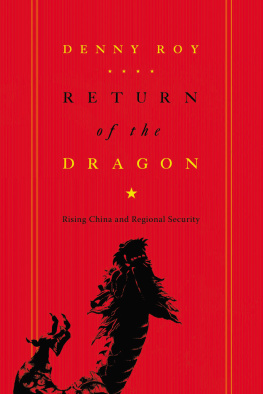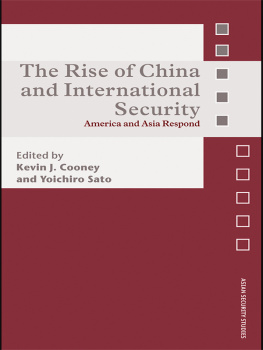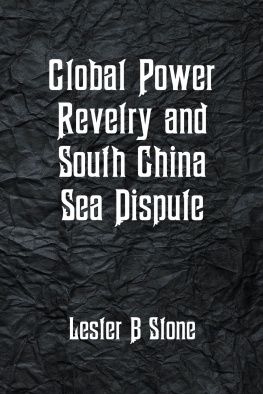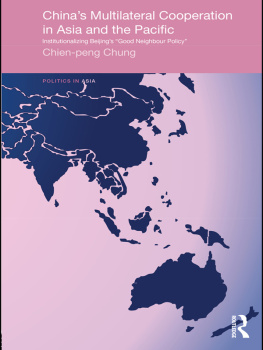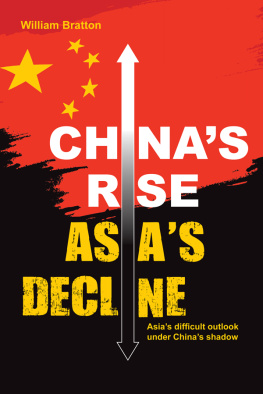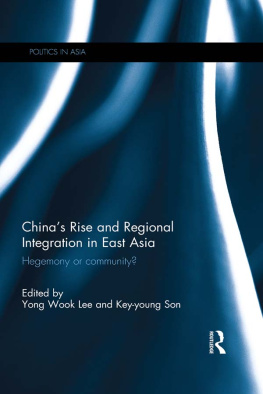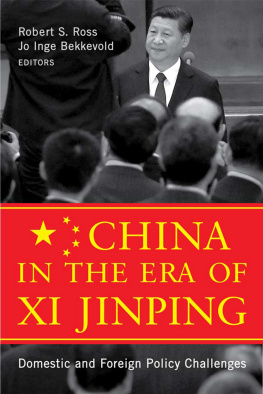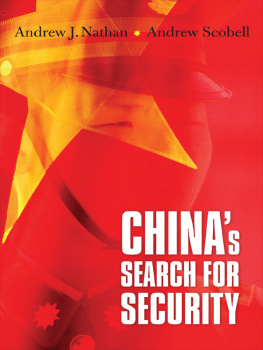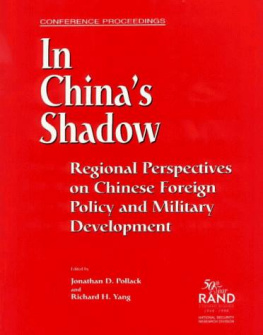RETURN of the DRAGON
CONTEMPORARY ASIA IN THE WORLD
David C. Kang and Victor D. Cha, Editors
This series aims to address a gap in the public-policy and scholarly discussion of Asia. It seeks to promote books and studies that are on the cutting edge of their respective disciplines or in the promotion of multidisciplinary or interdisciplinary research but that are also accessible to a wider readership. The editors seek to showcase the best scholarly and public-policy arguments on Asia from any field, including politics, history, economics, and cultural studies.
Beyond the Final Score: The Politics of Sport in Asia, Victor D. Cha, 2008
The Power of the Internet in China: Citizen Activism Online, Guobin Yang, 2009
China and India: Prospects for Peace, Jonathan Holslag, 2010
India, Pakistan, and the Bomb: Debating Nuclear Stability in South Asia, umit Ganguly and S. Paul Kapur, 2010
Living with the Dragon: How the American Public Views the Rise of China, Benjamin I. Page and Tao Xie, 2010
East Asia Before the West: Five Centuries of Trade and Tribute, David C. Kang, 2010
Harmony and War: Confucian Culture and Chinese Power Politics, Yuan-Kang Wang, 2011
Strong Society, Smart State: The Rise of Public Opinion in Chinas Japan Policy, James Reilly, 2012
Asias Space Race: National Motivations, Regional Rivalries, and International Risks, James Clay Moltz, 2012
Never Forget National Humiliation: Historical Memory in Chinese Politics and Foreign Relations, Zheng Wang, 2012
Green Innovation in China: Chinas Wind Power Industry and the Global Transition to a Low-Carbon Economy, Joanna I. Lewis, 2013
The Great Kant Earthquake and the Chimera of National Reconstruction in Japan, J. Charles Schencking, 2013
RETURN of the DRAGON
Rising China and Regional Security
Denny Roy
COLUMBIA UNIVERSITY PRESS
New York
Columbia University Press
Publishers Since 1893
New York Chichester, West Sussex
cup.columbia.edu
Copyright 2013 Columbia University Press
All rights reserved
ISBN 978-0-231-52815-3 (e-book)
Library of Congress Cataloging-in-Publication Data
Roy, Denny, 1960
Return of the dragon : rising China and regional security / Denny Roy.
pages cm. (Contemporary Asia in the world)
Includes bibliographical references and index.
ISBN 978-0-231-15900-5 (cloth : alk. paper) ISBN 978-0-231-52815-3 (e-book)
1. ChinaForeign relations21st century. 2. World politics21st century. 3. ChinaInternational status. 4. National securityChina. I. Title.
DS779.47.R68 2013
355'.033051dc23
2012042059
COVER ILLUSTRATION: Sail Byrnes
COVER DESIGN: Faceout Studio
A Columbia University Press E-book.
CUP would be pleased to hear about your reading experience with this e-book at .
References to websites (URLs) were accurate at the time of writing. Neither the author nor Columbia University Press is responsible for URLs that may have expired or changed since the manuscript was prepared.
CONTENTS
Chapter One
Introduction
Chapter Two
A Chinese View of the World
Chapter Three
U.S.-China Relations Under Hegemonic Transition
Chapter Four
Chinas Military Rise
Chapter Five
Japan and China: A Long Struggle with Bitter Resolve
Chapter Six
Pressure on Chinas Neighbors
Chapter Seven
Mitigating Factors
Chapter Eight
Persistent Risk of Conflict
Chapter Nine
North Korea: Bothersome Client State
Chapter Ten
Taiwan in the PRCs Lengthening Shadow
Chapter Eleven
The South China Sea Dispute
Chapter Twelve
China and Global Security Issues
Chapter Thirteen
Conclusion
RETURN of the DRAGON
Everyone who follows and thinks about international affairs is aware that the rise of China is changing our world.
The economic aspect of Chinas rise is well knownperhaps too well known, to the point of exaggeration. Most Americans who responded to a 2011 Gallup poll thought China already had the worlds largest economy, even though at that time the U.S. economy was more than double the size of Chinas and Americas per capita gross domestic product was more than ten times the figure for China. The basic consequences are straightforward. The world is buying more from China and selling more to China. Chinas economic development is providing lower-priced products for the worlds consumers, but it is also driving many foreign companies out of business and increasing the competition for some global resources.
The international security aspect of Chinas riseits effect on the ability of countries and peoples to protect themselves from intimidation or the use of force against them by other governmentsis at least as important as the economic aspect. The emergence of China as a great power is the preeminent global security issue of the twenty-first century. But what does this mean? Identifying and specifying the security consequences of a stronger China is relatively challenging.
Some observers, including members of the U.S. Congress, see China as a reincarnation of Nazi Germanybut with a larger resource and population base. Alarmist authors say China is driving for global dominance and predict a shooting war within the next ten years between China and the United States. Other commentators, however, assure us that conflict between China and the other major powers is unlikely because continued
Certainly, neither of these two simplistic and extreme views is reliable. We should not expect Chinese troops to march into the capitals of Asian states, nor is Beijing lusting for a war against the United States so China can become the new superpower. At the same time, however, we can count on high tensions and a risk of military conflict during the next couple of decades, as the growth of Chinese power increases international friction and sharpens strategic disputes.
China is sometimes called the next superpower. A superpower is not simply the worlds strongest country. It is a historically rare breed of state that can bring decisive political or military power to bear in any region on earth. This may be in Chinas distant future, but for now the PRC is clearly emerging as a great power: a country that ranks among the worlds top few states in its political influence, economic strength, and military capabilities.
This book assesses the effect of China as a great power on important security and strategic issues. The main focus is on the major Asia-Pacific countries most affected by a stronger China. I will argue that the increased tensions naturally resulting from the rapid rise of an indignant new great power will meet powerful moderating forces, but ultimately Chinas expectation of a sphere of influence will create or worsen dangers for Chinas neighbors. On balance, the rise of an extraordinarily strong China will decrease security for the region.
The rise of China will generate strategic tensions. This is partly because of the nature of international politics. Since the international community cannot guarantee the safety of states, the dangers of military attack and invasion are ever present facts of life for national governments. States cannot fully trust each other and must therefore see one another as potential adversaries. To increase their security, states try to make themselves powerful relative to other states. This is the surest way to deter would-be adversaries from attacking. States that succeed in making themselves strong, however, draw greater suspicion because they can cause greater harm to other states in the event of war. Strong states are able to bully other states or to contemplate starting a war. Tension is especially likely between a new great power and an established great power that seeks influence over the same regionin this case, China and the United States.

